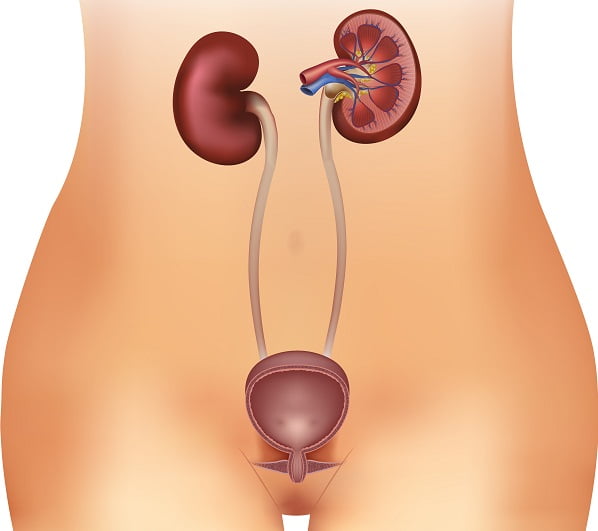Urethritis: Causes, Symptoms, Diagnosis, Treatment, Complications
- Updated on: Jul 9, 2024
- 3 min Read
- Published on Oct 2, 2019


What is urethritis?
Urethritis is a condition in which infection induced inflammation is experienced in the urethra. Urethra is a tube that carries urine from urinary bladder to outside the body.
A person suffering from urethritis experiences a lot of pain while urinating. He or she may find difficulty in urinating.
People of any age can be affected by urethritis. It can even occur in both males and females but there is a greater chance of females being infected by urethritis. This is due to the fact that female’s urethra is much smaller than male and thus it becomes very easy for bacteria to enter it.
As per the reports of Antimicrobe, urethritis occurs in about 4 million Americans every year.
What are the causes of urethritis?
Urethritis generally occurs due to an infection from microorganisms such as bacteria or a virus. The most common cause of urethritis is bacteria.
These bacteria can also cause other infections such as bladder and kidney infection. Bacteria are naturally found in the genital part but if they enter the urinary tract, they might cause serious infections.
There are many bacteria which are responsible for causing urethritis. Some of them are:
- Chlamydia trachomatis
- Neisseria gonorrhoeae
- Mycoplasma genitalium
- E.Coli
Urethritis is also caused due to sexually transmitted disease. For example, Chlamydia trachomatis causes a disease called chlamydia which is a sexually transmitted disease and gonorrhea is also a sexually transmitted disease caused by N. gonorrhea. Trichomonas is a single-celled organism that causes urethritis through sexual transmission.
Certain viruses such as human papillomavirus, cytomegalovirus (CMV) and herpes simplex virus (HSV) are also responsible for causing urethritis.
What are the types of urethritis?
Urethritis is classified into two classes on the basis of the cause of inflammation. They are as follows:
Gonococcal urethritis
Gonococcal urethritis is a type of infection that is caused by the same bacterium which also causes sexually transmitted disease known as gonorrhea.
Nongonococcal urethritis
Nongonococcal urethritis is a type of urethritis that is caused due to infections other than gonorrhea.
What are the symptoms of urethritis?
Urethritis is an inflammation that occurs in both men and women. Therefore, its symptoms also vary according to the gender.
Symptoms of urethritis in women
In women, urethritis brings certain symptoms such as:
- Pain and discomfort during urination
- Frequent urge to urinate
- Abnormal vaginal discharge
- Frequent urge to urinate
Symptoms of urethritis in men
In men, urethritis brings certain symptoms such as:
- Pain and burning sensation during urination (dysuria)
- Presence of blood in urine or semen
- Discharge from penis
How is urethritis diagnosed?
Generally, the symptoms of urethritis are not observed clearly. To properly diagnose the disease, one has to go and see a doctor. Only a doctor can correctly diagnose the disease and suggest proper treatment procedures.
In males, the first step for diagnosis is the physical examination of the inflamed part. The doctor examines the penis for skin lesions and redness, urethra for lesions, any urethral discharge, tenderness, etc.
In female, the doctor fully examines the pelvis and the cervix, urethra and skin lesions.
Various laboratory tests are conducted for correctly diagnosing the disease.
- Gram staining test
- Nucleic acid-based tests useful for C trachomatis and N gonorrhoeaetc.
- KOH preparation for fungal detection
- Wet mount preparation to know the presence of Trichomonas
What are the treatment options for urethritis?
In most cases urethritis can resolve on its own even without a treatment. However, the chances of developing further complications remain.
Read about: Can urethritis go away on its own?
Urethritis treatment normally involves a strict course of medicines such as antibiotics or antiviral medicines. There are various medicines that are prescribed by doctors to treat urethritis. Few examples are:
- Ofloxacin
- Moxifloxacin
- Cefixime
- Azithromycin, etc.
If the infection is caused due to sexual transmission, then it becomes extremely necessary for both the partners to get properly treated. Apart from the antibiotics, there are certain medications used to treat urethritis. Some are:
- Heart medications
- Seizure medications
- Blood- thinning medications.
What are the complications of Urethritis?
Normally, urethritis can be quickly treated by medicines but if it remains untreated, the infection may lead to severe consequences. There are high chances of the infections spreading quickly to other parts of the system such as kidneys, urinary bladders and ureters. It can be very painful and can cause severe damage to the organs. If this infection enters the blood then it can be deadly and can cause sepsis.
The sexually transmitted infections that result in urethritis can severely damage the reproductive system. Women can suffer from painful pelvic inflammatory disease and can result in infertility. Men can also suffer from painful inflammation or prostate gland infection.












